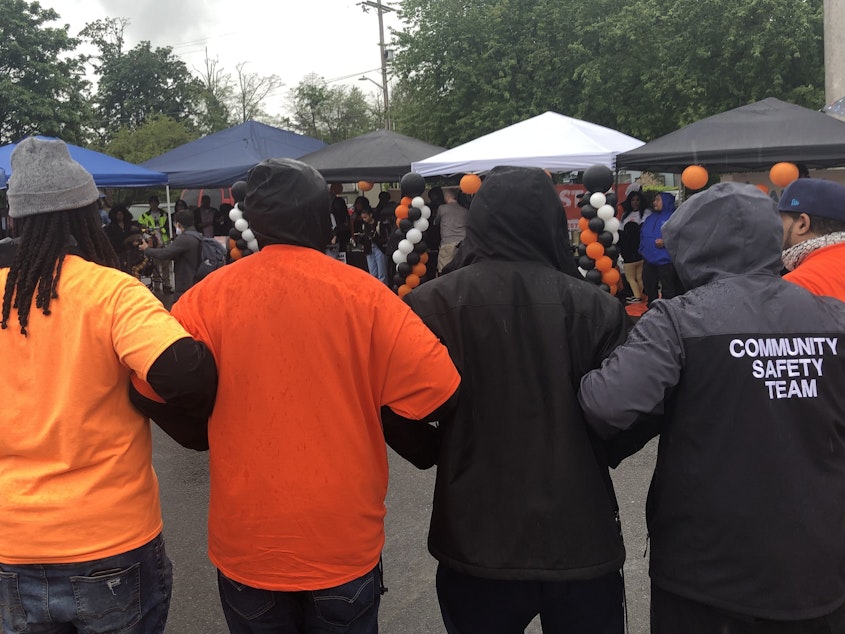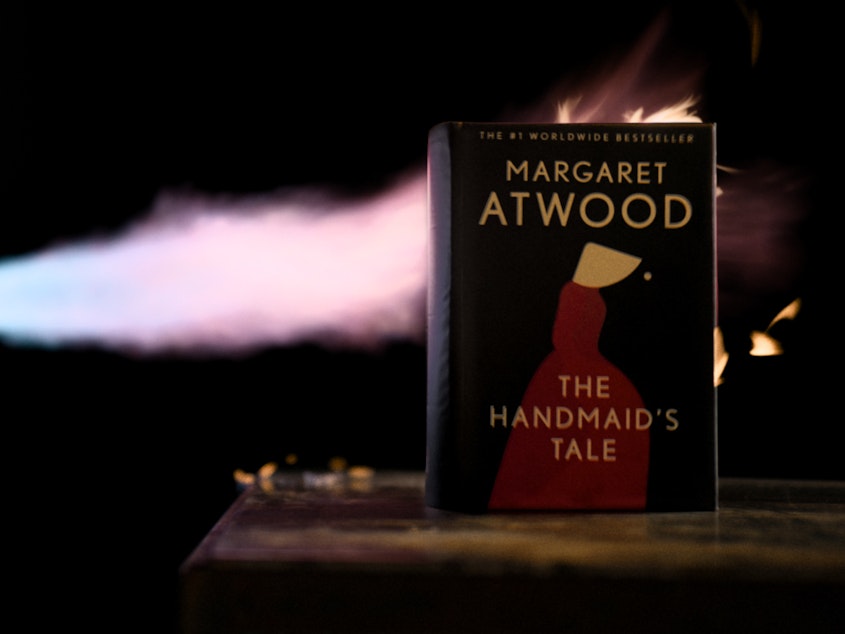Should workers return to the office? Do they even want to?: Today So Far

- Washington state's tax system has a local twist for online shopping. Rural communities are liking it.
- A Seattle neighborhood is debating the pros and cons of a potential light rail station. Either way, Sound Transit will likely disappoint one group.
- Should workers return to the office? Do they even want to? That's what employees are discussing at a Bothell company.
This post originally appeared in KUOW's Today So Far newsletter for June 7, 2022.
I have this subtle joke I sometimes pull out in conversation. I say that I like to shop local (a good goal for conscious consumers). Ya know, Third Place Books, Mox Boarding House ... Amazon.
Clearly, one of those places is not like the others. And clearly, I am not making a living as a stand-up comedian. But the logic behind my little quip may be more true than I previously realized. KUOW's Joshua McNichols just reported an intriguing angle around online shopping. Washington's rural communities have a tougher time collecting taxes than more populated areas. Think about it — more people means more stores; more stores means more sales; more sales means more sales tax; more sales tax means more revenue for cities. But rural communities are, well, rural.
In 2008, Washington moved to a "destination-based sales tax." That means if a person buys something online and has it delivered to Wahkiakum County, the sales tax goes to where they live, the county. Not the city of the online store. That has been a game changer for a lot of rural areas around the state. The surge of pandemic deliveries has pushed things even further.
“We had communities like Concrete which suddenly had huge increases in sales tax collection, where before they didn’t have very much because they didn’t have a retail presence,” said James McCafferty, co-director of Western Washington University's Center for Economic and Business Research.
I was just camping outside of Concrete, and I can report that the Amazon trucks are making their rounds out there. So I guess I could still say my little joke. I'll just have to end with "Starbucks" now. Read Joshua's full story here.
Sponsored
The Seattle area loves light rail. Voters keep approving more of it, and locals celebrate when a new station opens. But one community is wary of Sound Transit's plans for a light rail station in its backyard — the Chinatown-International District. There are two options for the station: one on Fifth Avenue and one on Fourth Avenue. Both have problems that would disrupt the community and are receiving pushback. Whichever it chooses, Sound Transit is going run afoul of locals. Read the full story here.
Pandemic conditions are easing up more and more. Should workers return to the office? Do they want to?
Let's add a few things up. Some folks don't like virtual meetings. Others love them. Let's call that a wash. Returning to the office means commuting, during a time when gas prices are inching closer to $6 a gallon. And does losing a significant chunk of your day while sitting in traffic seem appealing? There could be a gain in morale from being out and about and seeing co-workers again. And there could be a loss of morale from having to wear pants again.
That's the sort of conversation happening around a Bothell company at the center of this NPR story. Jonathan Pruiett works at the company, which updates Google maps. He has only known the job from a distance, working from home. But now, the company wants to flip a switch and get workers back into the office, full time. This flip-a-switch approach has not gone over well. Employees have negotiated a stretched-out approach to the office return, but many still don't see the benefit as long as the job gets done.
At the same time, some companies have learned a lesson that the office doesn't necessarily equal quality work. But jobs vary and not all are apt for remote-work. Read the full story here.
Sponsored
AS SEEN ON KUOW

People stand in the rain and link arms at an event for National Gun Violence Awareness Day in Skyway, Wash. They chanted, “I am my brother’s keeper. I am my sister’s keeper.” (Anna Boiko-Weyrauch / KUOW)
DID YOU KNOW?
Yesterday was National Drive-In Movie Day. Since it was a Monday, I'm assuming that not too many folks got out to their local drive-ins — of which Western Washington has about four. They include Whidbey Island's Blue Fox Drive-In, Port Townsend's Wheel-In-Motor Movie Drive-In, Shelton's Skyline Drive-in, and the Rodeo Drive-In outside of Bremerton. I usually go to the drive-ins over in Bremerton and on Whidbey Island and I highly recommend them.
Sponsored
According to internet chatter, National Drive-In Movie Day commemorates the first such vehicle-oriented theater in the USA, 89 years ago. Richard Hollingshead opened the first drive-in in Camden, New Jersey. As the legend goes, Hollingshead's mother was a larger person who had difficulty using common theaters. So he came up with the idea of a drive-in which would allow them to see movies together. In 1933, he got a patent for the drive-in idea and experimented with showing movies in his driveway. By 1934, he had opened the first full drive-in ever. The theater reportedly didn't make a profit and Hollingshead sold it. Regardless, it started a trend and drive-in theaters started popping up across the United States, and the globe.
ALSO ON OUR MINDS

A fireproof copy of 'The Handmaid's Tale' is being auctioned to help fight book bans
"I never thought I'd be trying to burn one of my own books ... and failing," Margaret Atwood said in a statement. "The Handmaid's Tale has been banned many times—sometimes by whole countries, such as Portugal and Spain in the days of Salazar and the Francoists, sometimes by school boards, sometimes by libraries."

